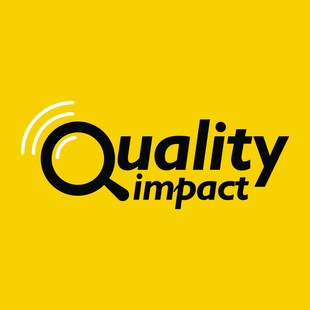
Role of observers and technical specialists in quality audits
Progress indicator

Andrew Ward CQP MCQI outlines the roles of observers and technical specialists in audits – and the ground rules required to ensure a smooth audit process.
Quality audits often involve more than just the core audit team; observers and technical specialists frequently accompany the auditors. While they bring added value, their roles must be clearly defined and managed to ensure the audit remains on track. Without proper structure, their presence can create confusion, especially if they are unfamiliar with audit processes.
Here, we will take a look at the distinct roles of observers and technical specialists in audits, their involvement at various stages, and the ground rules needed to maintain a smooth audit flow.
Role of an observer
Observers are typically present to witness how the audit is conducted, and to listen to the discussions between the audit team and auditees. They might be appointed by a client to ensure transparency. However, it is crucial to recognise that observers do not participate in questioning or decision-making.
Observers are not required to have any specific qualifications or auditing skills. Their presence is primarily for oversight and any involvement is always at the discretion of the lead auditor. The lead auditor may revoke an observer’s permission to attend at any time, especially if their presence disrupts the audit.
Observers must also strictly adhere to the audit’s confidentiality protocol. Any breach of confidentiality is has to be taken seriously and could have significant consequences.
"Observers and technical specialists can add value to quality audits, but their roles must be clearly defined to avoid disruptions."
Role of a technical specialist
Technical specialists, unlike observers, are brought in for their expertise in specific technical areas relevant to the audit. They help the audit team assess technical aspects, ensuring that complex findings are accurate and grounded in sound knowledge.
However, like observers, technical specialists are not there to conduct the audit, but to provide input to the lead auditor and audit team. It is for the lead auditor to decide which technical specialist questions are asked, usually via or on instruction from the lead auditor.
Audit planning
In the planning phase, the roles of observers and technical specialists need to be defined clearly. For observers, it is essential that they understand their non-participatory role, including the confidentiality rules they must follow. Their purpose should be made clear to avoid any potential misunderstandings during the audit.
For technical specialists, the planning stage involves a briefing on the scope of the audit and the areas in which their expertise will be required – their involvement must be aligned with the audit objectives. The lead auditor should ensure that the specialist’s contributions do not extend beyond the agreed scope.
During this phase, it is also important to plan their physical presence. Observers and technical specialists should only attend those parts of the audit where their input is necessary, preventing unnecessary distractions or delays.
Pre-audit briefing
Before the audit begins, observers and technical specialists must receive a detailed briefing from the lead auditor. This ensures that all participants understand their roles and the boundaries of their involvement.
For observers, the briefing should cover the audit’s purpose, scope and what is expected of them in terms of behaviour. They should understand that they are not allowed to ask direct questions of the auditee. Any questions or concerns they have should be communicated to the lead auditor, who will decide if these should be raised during the audit (see table below).
| Role – emphasise that they are there to observe, not to participate. |
|
Responsibility – detail anything specific, such as taking notes or managing timings to schedule. |
| Process – explain the audit process so they understand what to expect in the audit. |
| Conduct – explain the audit process so they understand what to expect in the audit. |
| Communication – all questions to the lead auditor, for him/her to ask if appropriate. |
| Confidentiality – stress the importance of confidentiality and the requirement to protect all information. |
| Documentation – review scope and questions, to explain the audit structure and their place within it. |
| Confirmation – clarify their understanding of the briefing with questions and answers. |
Technical specialists require a more tailored briefing, as they need to know the specific technical areas they will be evaluating. They should be informed about how to convey their findings to the lead auditor and when their input will be required. Any contributions they make must align with the scope of the audit and they should be prepared to provide technical insight through the appropriate channels (see table below).
| Role – outline their role within the audit team. |
| Responsibility – to evaluate technical evidence presented and support the team with technical knowledge. |
| Process – explain the audit process so they understand what to expect and the areas on which they will be focusing. |
| Conduct – explain the expected standard of behaviour and audit etiquette, and how the technical expert will interact during the audit. |
| Communication – explain how to relay findings and insights to the audit team. Communicate through the lead auditor until asked otherwise. |
| Documentation – explain which technical documents are expected to be supplied for review and the possible timescales, to match the audit programme. |
| Confirmation – clarify their understand of the briefing with questions and answers. |
During an audit
Once the audit begins, observers and technical specialists must adhere to the guidelines set during the planning and briefing stages. Observers should refrain from participating in discussions with the auditee and focus instead on taking notes. Any questions or concerns should be communicated to the lead auditor.
Technical specialists may offer their insights during the audit, but their input must follow the proper procedures. For example, if a technical issue arises, the specialist can provide their analysis to the lead auditor, who will decide whether to raise the issue with the auditee. This ensures that the audit stays on track and avoids confusion.
Observers and technical specialists must strictly observe confidentiality throughout the audit. They will be privy to sensitive information and any breach of confidentiality could severely impact the audit’s integrity.
Audit report
At the conclusion of the audit, the focus shifts to preparing the audit report. Observers generally do not have a direct role in this phase, though they may be invited to provide feedback or participate in discussions about the findings. However, they do not influence the final content of the report.
Technical specialists, on the other hand, may contribute more actively, particularly if their expertise was crucial in identifying nonconformities or recommendations for improvement. Nevertheless, the lead auditor retains full authority over the audit report’s content. The technical specialist’s input remains advisory and the lead auditor decides which findings to include.
Conclusion
Observers and technical specialists can add value to quality audits, but their roles must be clearly defined to avoid disruptions. Observers provide oversight but have no participatory role, while technical specialists offer technical insights but are not decision-makers. Clear planning, thorough briefings, and adherence to ground rules ensure that their involvement enhances the audit process without compromising its integrity.
Join our Audit special interest group
Want to discuss this topic, or related ones, with like-minded individuals? Join the CQI Audit SIG!
The latest from the CQI Podcast

Listen to the Quality Impact podcast, where experts share insights on the evolving role of quality across industries.
Quality World

Get the latest news, interviews and features on quality in our industry leading magazine.



